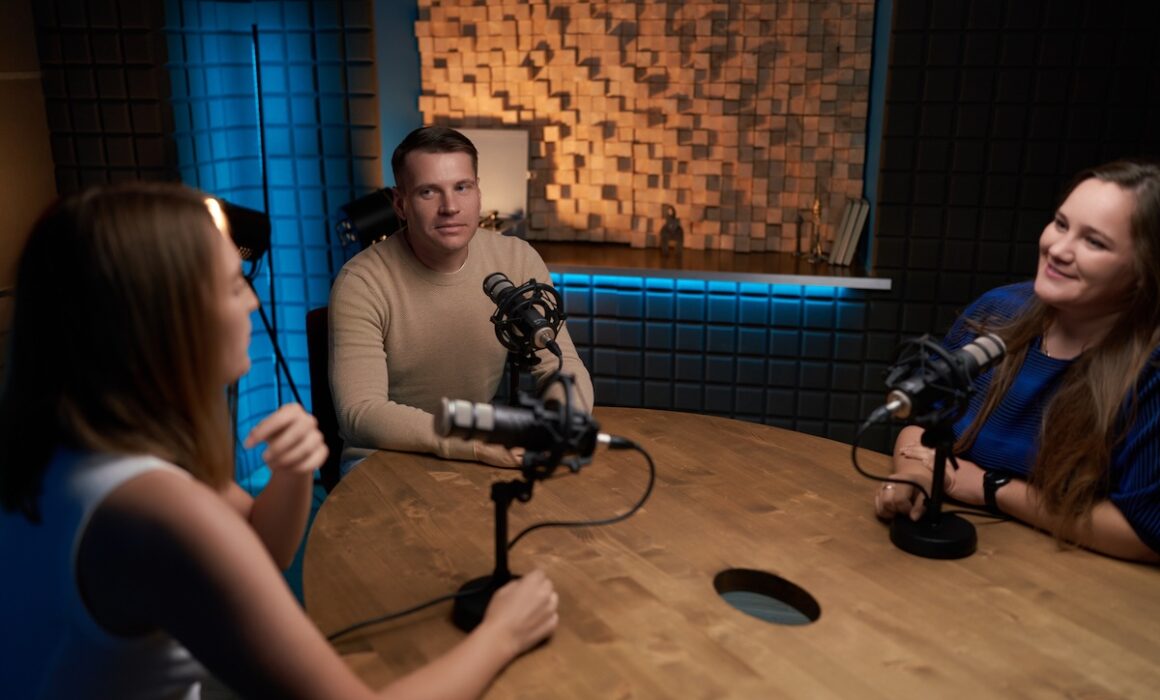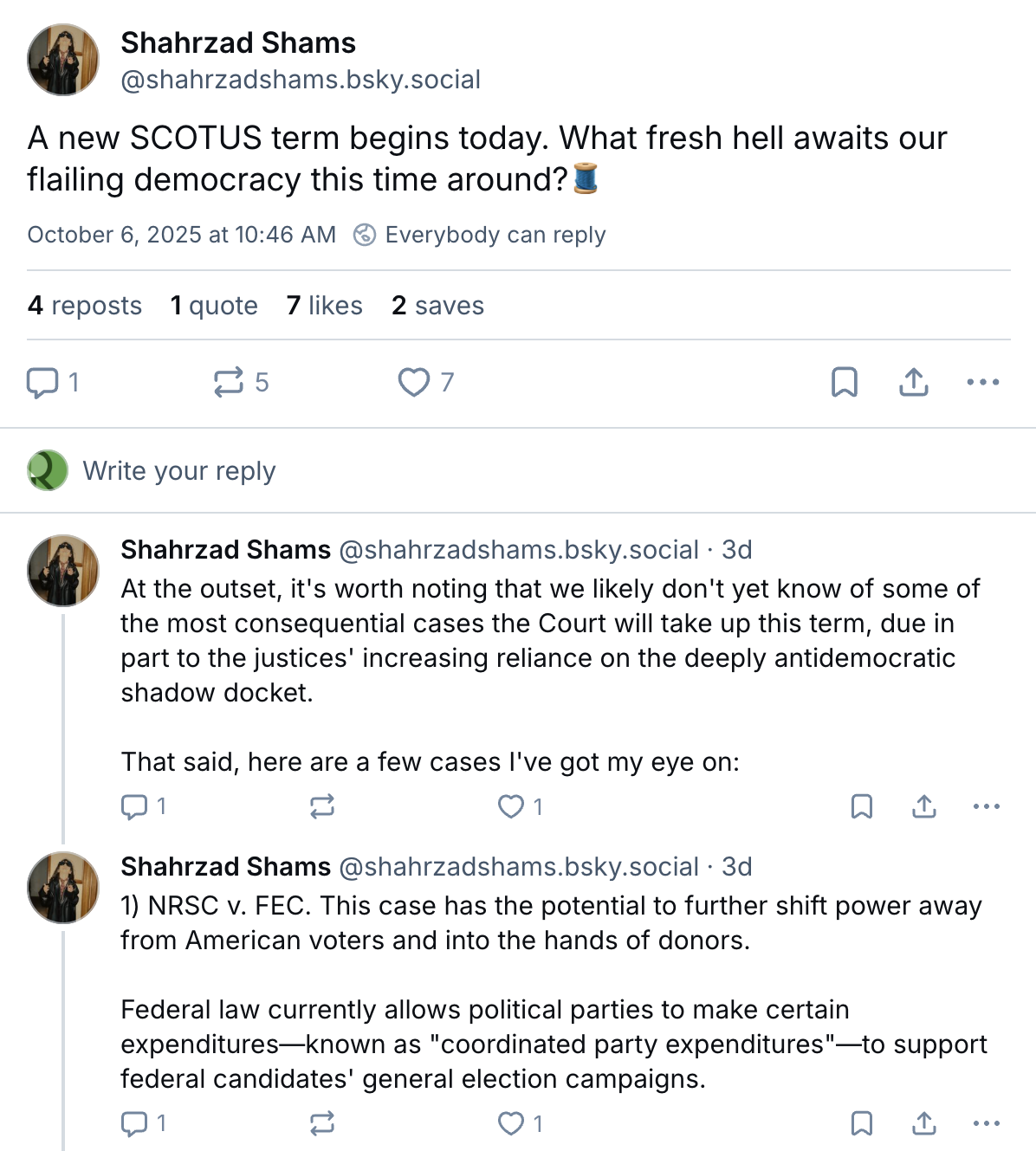For-Profit News Lost America’s Trust. Public Media Can Rebuild It.
October 10, 2025
Americans’ trust in corporate media hit a record low last week.
The Roosevelt Rundown features our top stories of the week.

Photo by Sergey Mironov/Getty
Americans Want a Trustworthy Press. Public Media Can Deliver.
This week, months after the Federal Communications Commission approved its parent company Paramount’s merger, CBS News announced a new editor-in-chief: Bari Weiss, founder of the website The Free Press. It’s the latest sign that today’s ever-concentrating media industry may lead to more biased coverage, and the latest reminder of why Americans’ trust in media is at a record low.
In a new blog post, Roosevelt’s Bilal Baydoun calls for a news media ecosystem that prioritizes providing information over maximizing profit—and explains why public media can take us there.
Trust in the media’s ability to “report the news fully, accurately, and fairly” has sunk to less than 30 percent according to Gallup. But as Baydoun points out, that number doesn’t reflect the fact that a majority of Americans do, in fact, trust public media and local stations. “The media trust crisis is therefore largely a response to commercial media,” Baydoun writes.
“As commercial media undergoes a historic transformation, we should insist on rebuilding a world-class public media system as the only effective counterbalance to what is poised to be a more consolidated and ultimately more censored media sector.” As ABC’s suspension of Jimmy Kimmel illustrates, corporate consolidation is a direct threat to a free press.
Meanwhile, as commercial media grows more powerful and more biased, the Trump administration’s funding cuts have forced the Corporation for Public Broadcasting to shut down—reflecting “a broader effort by this administration to dismantle any institutions that might hold it accountable,” Baydoun said in a July statement.
“What the polling makes clear,” Baydoun writes, “is that Americans still want a free and trustworthy press—but the collapse of public media leaves fewer places to find it.”
Without treating public and local news stations as the indispensable societal infrastructure they are, the breakdown of faith in democracy will only get worse. “Commercial outlets are built to maximize profit, not to safeguard democratic accountability,” Baydoun writes. “If trust in media is collapsing, then a revitalized public system is the strongest foundation on which to rebuild it.”
Read the blog post: “Americans’ Trust in Media Hit a Record Low This Week. Only Public Media Can Restore It.”
Zooming in on the Link Between Disability and Poverty
One in four Americans has a disability, and being disabled is a state that any one of us could move in and out of throughout our lives. And these millions of Americans face deep inequality: Disabled Americans are twice as likely to live below the poverty line. In a new blog post, Roosevelt’s Lena Bilik writes about the launch of the Disability Economic Policy & Research Consortium, a coalition of groups dedicated to delivering economic security and dignity for disabled Americans.
The link between disability and poverty is “one of the most entrenched and overlooked injustices in US policy,” writes Bilik. “People with disabilities are up close and personal with our fraying social safety nets, our lack of federal labor protections, and the indignities of means-tested and underfunded public programs that put undue administrative burden on people simply seeking economic freedom and a dignified life.” Digging into disabled people’s experiences with the US economy can provide critical insights for where cracks in public policy are most pronounced.
Read more about the initiative, a partnership between the Roosevelt Institute and the National Academy of Social Insurance: Economic Policy Is Disability Policy: Launching the Disability Economic Policy & Research Consortium
What We’re Talking About
What We’re Reading
- On TrumpRx: Prescription drug prices in the US are sky-high, and there’s no doubt that Americans need relief. In a piece for MSNBC, Roosevelt’s author-in-residence Miranda Yaver digs into the uncertainties around Trump’s plan to lower the costs of medication, dubbed “TrumpRx.”
- “[D]oes this new policy rollout prioritize cost savings for American patients, or will it largely operate as a means for select pharmaceutical companies to avoid . . . newly announced tariffs?” According to Yaver, “the jury is still out.”
- On threats to higher education: “By pushing ‘market logic’ into higher education, [neoliberal] reforms have made the rich richer and the poor poorer,” Roosevelt Society Reimagine Fellow Luke Herrine writes for the LPE Project blog. Building on his recent Roosevelt report, Herrine traces the links between the transformations of the university system throughout the 20th century and the authoritarian turn we see today.
- On the government shutdown: As politicians argue over whether people deserve health-care subsidies, the shutdown stretches into day 10, straining essential services like air traffic control.
- Meanwhile, the administration continues to threaten permanent layoffs—the complete opposite of what’s needed for a well-functioning government that can do its job and deliver for the people.
